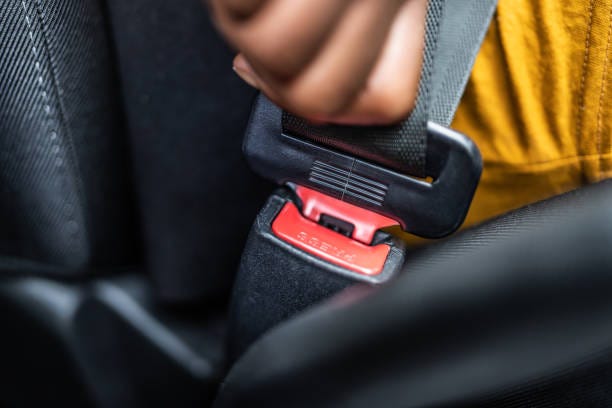
The Minnesota Department of Public Safety says law enforcement cited nearly 1,800 drivers for not wearing their seat belts during the latest statewide "Click it or Ticket" campaign.
WCCO's Laura Oakes spoke with Minnesota State Patrol Lieutenant Gordon Shank about this, whether drivers are slipping when it comes to the "hands-free" cell phone law, and if multiple recent crackdowns on excessive speeding have been working.
Laura Oakes: Why don't people buckle up in this day and age?
Lt. Shank: It's always disheartening. When we see these people that end up getting cited for seatbelt violations, because it's completely preventable. You just buckle up. That's all we're asking, buckle up. It saves you from hurting yourself in a crash. Even if it's something that's not your fault, you get hit by somebody else. If you're not buckled up, your injuries are going to be more significant if you didn't have your seatbelt on.
Oakes: And when you stop them and cite them and ask them why they're not wearing it, what kinds of answers do you get?
Lt. Shank: It really varies. I can tell you from personal experience, these drivers often mention that I just forgot to put it on. I was only going a short distance. I just don't like to wear it. It not comfortable. I don't like the way that it goes across my shoulder. Things like that. Those are all things that we hear. A lot of times we just hear people forgot to put it on and that seems to be a recurring theme that we see with these drivers and we’re interacting with, is that it's just forgetting to put the seatbelt on. And it's very important that we do remember to do that. It's it could save your life.
Oakes: I also wanted to talk a little bit about the hands free driving law. It seems to me that maybe people are slipping a little bit and they're starting to text and drive or look at their phones when they're not supposed to be. Are you seeing any kind of an uptick in that and is it something that you expected?
Lt. Shank: Distracted related deaths are the highest they've been since 2019. So we are seeing that people are getting in those habits again, of using the cell phone in a manner that's not hands free. And we interact with these drivers. I've stopped quite a few drivers lately that have been on their cell phones. Most of them know the law.
They know that it's against the law and it's just a habit that they can't break. And unfortunately these habits end up having real life consequences, not just for themselves, but other pedestrians, other vehicles. We continue to see drivers that go back into these habits. And it's really simple. Just put the phone away. That's all we're asking. Or have it in a way that's legal for you to use it, which is not in your hands. And if it's something that people have a challenge with, we just tell them, put it in a glove box, or throw it somewhere where you can't reach it.
Oakes: One more thing, and that is how our speeding problem is doing? I know we've had excessive speeds going on for a couple of years now with no real explanation. Is anything along those lines getting better?
Lt. Shank: We're still seeing drivers that are driving in excess of a hundred, but what I can tell you is overall speed related deaths are down 42% from this time last year.
So we are seeing a positive trend when it comes to that, but we still are seeing drivers that are making those risky decisions of driving too fast. And when drivers are driving in excess of the speed limit, there's a lot of things that can go wrong. We’re going to continue to be committed to stopping drivers that are going in excess of the speed limit.

